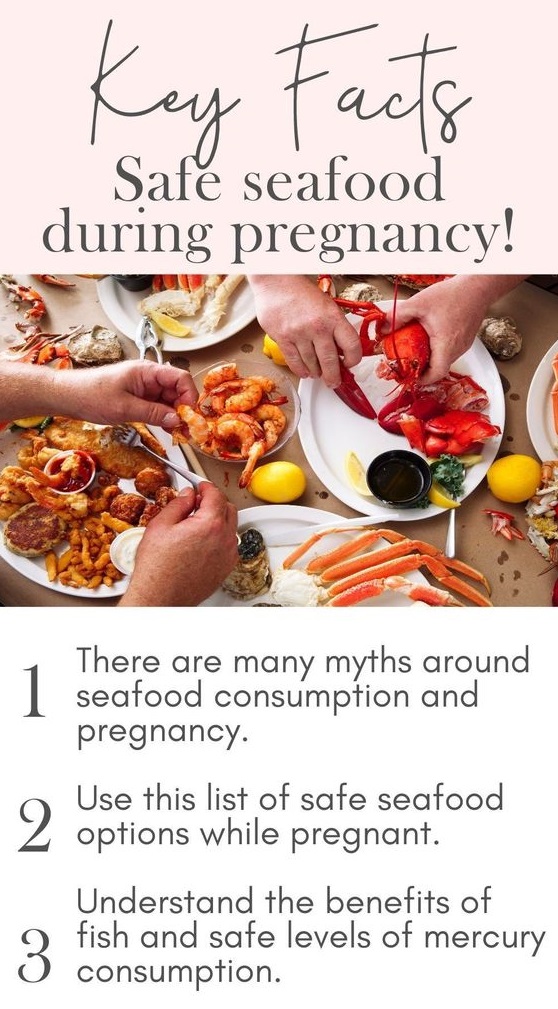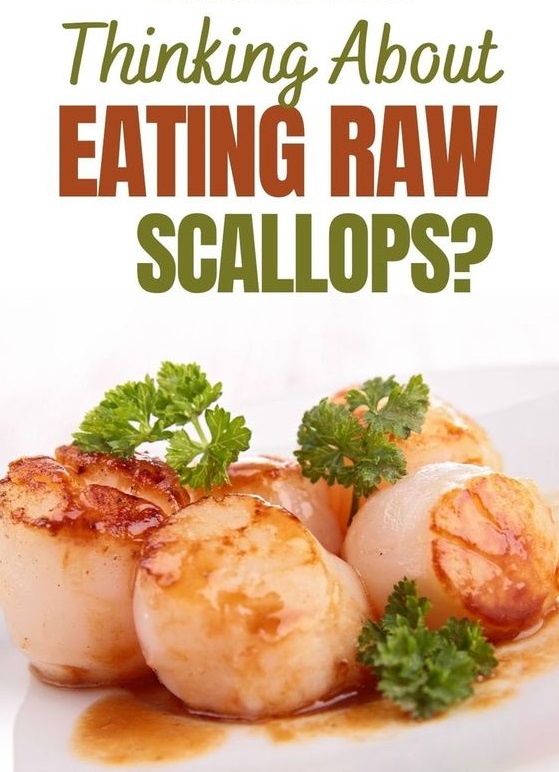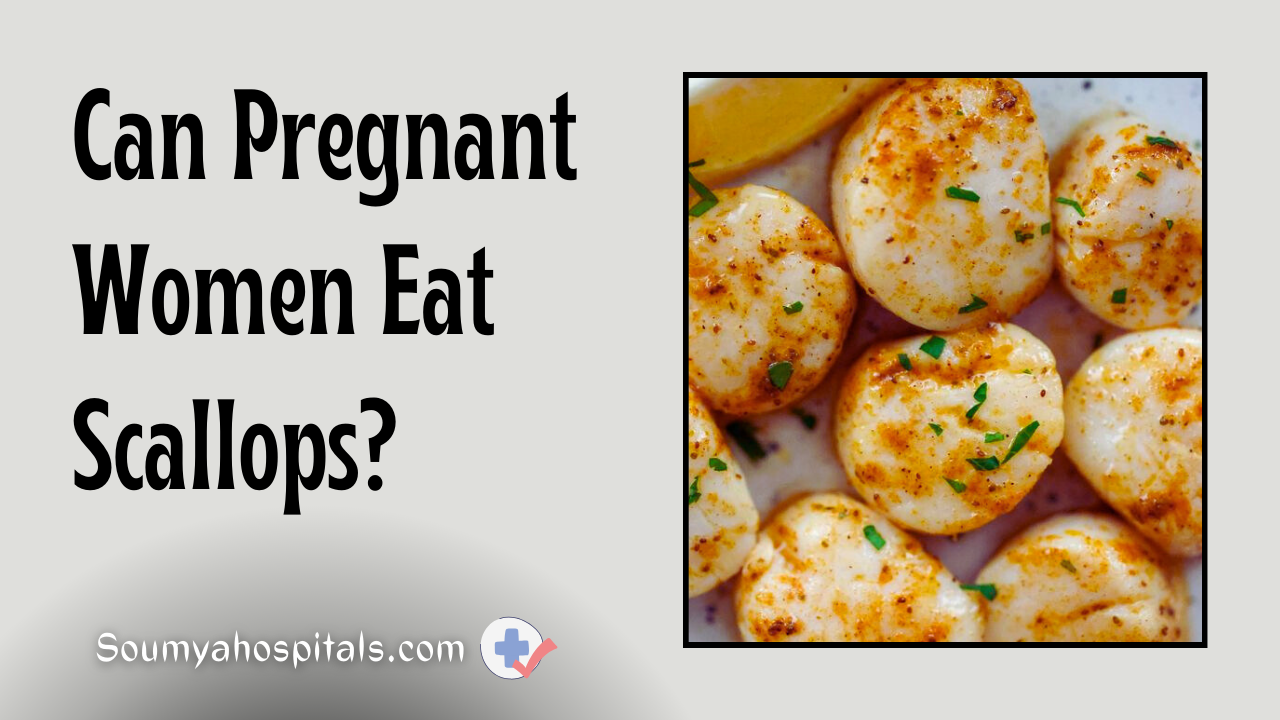With their mildly sweet flavor and delicate texture, scallops can often convert even the staunchest of seafood haters! They are a great source of lean protein and millions of people around the world love eating them seared, baked, grilled, sautéed, poached, or stir-fried. But if you’re pregnant, you may wonder if scallops may be safe for you to eat since many seafood products feature frequently on the “do-not-consume” list.
With A Low Mercury level, Scallops Are Safe For Pregnant Women

The American Pregnancy Association (APA) maintains that is vital for expectant and nursing moms to consume seafood such as wild-caught salmon, sardines, trout, mackerel, and mussels to get enough protein, omega 3s, calcium, iron, and vitamins that promote good fetal and infant development. The APA does, however, caution against consuming seafood products like tuna, king mackerel, and swordfish which contain high mercury levels that can cause damage to the nervous system. But if you’re pregnant and you love to eat scallops, there’s good news! Scallops have a low mercury content, which makes them relatively safe for consumption during pregnancy.
[expert_opinion expertname=’andreacaprio’ opinion=”Unless you are allergic to any seafood, scallops are safe during pregnancy. I recommend eating wild-caught seafood containing less harmful mercury. Always buy fresh or frozen whole seafood from a reliable source and cook it well.”]
Scallops Are A Good Source Of Nutrition For Mom And Baby
Scallops are lean proteins that are packed full of nutrients and have a low glycemic index, making them a very healthy food choice. As per the US Food and Drug Administration, scallops are a great source of protein, calcium, sodium, vitamins C and A, phosphorous, potassium, magnesium, and zinc. And, as your OB/GYN will tell you, these are nutrients that are vital for optimal fetal growth, not to mention great for your own health too.
The protein in scallops helps both mommy and baby with muscle development; calcium and magnesium help develop/maintain strong bones; zinc reduces the risk of low birth weight and aids in healthy cell growth; and the vitamins help develop great skin, hair, and eyesight.
Scallops are good for you. But that said, you still need to take some precautions when prepping, cooking, and consuming scallops. Keep the following pointers in mind.
Buy Fresh Or Frozen, Not Refrigerated, Scallops
As with all other seafood, you’re more likely to derive more nutrients if you buy them fresh or frozen. Avoid buying scallops that are stored in refrigerators to prevent the possibility of buying scallops that are, well, less than fresh. Also, make sure you buy all your seafood from a well-maintained fish counter or a seller you trust.
Buy Scallops With A Moist, Firm, And Pearly Flesh
In the US, scallops can be sold wet-packed or dry-packed. Dry-packed scallops are usually higher quality products that have not been treated with as many chemicals as wet-packed scallops. When buying scallops, make sure they’re not overly dry or wet or shredded-looking. The flesh should be moist but firm and should have a consistently pearly white color.
Clean And Prep Well And Eat Them Fresh
Compared to most other seafood, scallops are a breeze to clean and prep. Simply rinse them under cool running water and pat dry with a paper towel. If you see any side muscle on the scallop (a whitish tissue on the sides), you can tear it with your fingers. It is best to eat fresh scallops the same day you buy them.
Don’t Consume Raw Scallops

The National Health Service, UK, strongly discourages the consumption of any raw shellfish, including scallops, to prevent food poisoning and exposure to harmful bacteria and toxins. Needless to say, this rule is stricter when it comes to pregnant or breastfeeding women.
Cook Scallops Thoroughly
Pan-searing is a very popular method of cooking scallops, especially in restaurants, but it’s not a safe choice for pregnant women. Pan-seared scallops are only cooked at high temperatures for about 90 seconds to give them a gorgeous brown color on the outside while keeping it creamy and undercooked on the inside. Many restaurants will even leave the middle completely raw to bring out the full flavor profile of scallops. And since raw scallops are not a good idea for moms-to-be, it’s best to avoid pan-seared scallops. If you’re at a restaurant and you can’t resist pan-seared scallops, you can request your scallops fully cooked. If you’re making them at home in a frying pan, give them about two minutes on each side so they’re cooked through. You want to be careful, though, because overcooked scallops become rubbery, hard, and rather unpleasant to eat. You can also bake and grill scallops till they’re done and toss them into pastas, soups, salads, and grits.
Consume No More Than 2–3 Servings Per Week
Just like any other component of a balanced diet, you don’t want to go overboard with scallops. If you’re absolutely obsessed with scallops and must eat them frequently, eat no more than 2–3 servings a week. How much is a serving size, you ask? That’d be about 3.5 to 4 ounces or 100 grams.
Avoid Scallops If You Are Allergic To Shellfish
If you’re allergic to other shellfish like oysters, shrimp, and mussels, there’s a good chance you may be allergic to scallops as well. If you want to find out for sure, ask your doctor for an allergy test and check your results before going scallop shopping!
Also Read:
